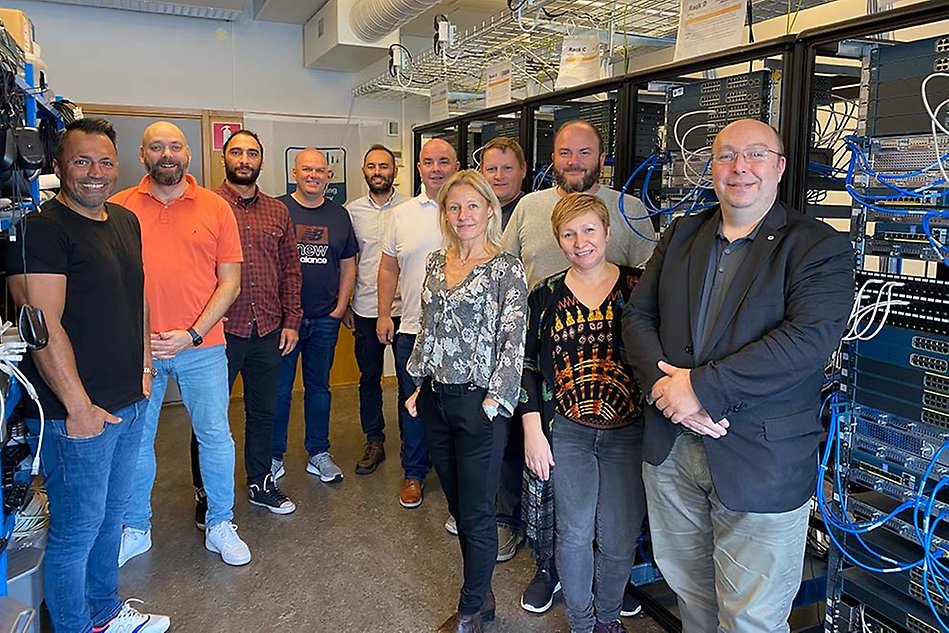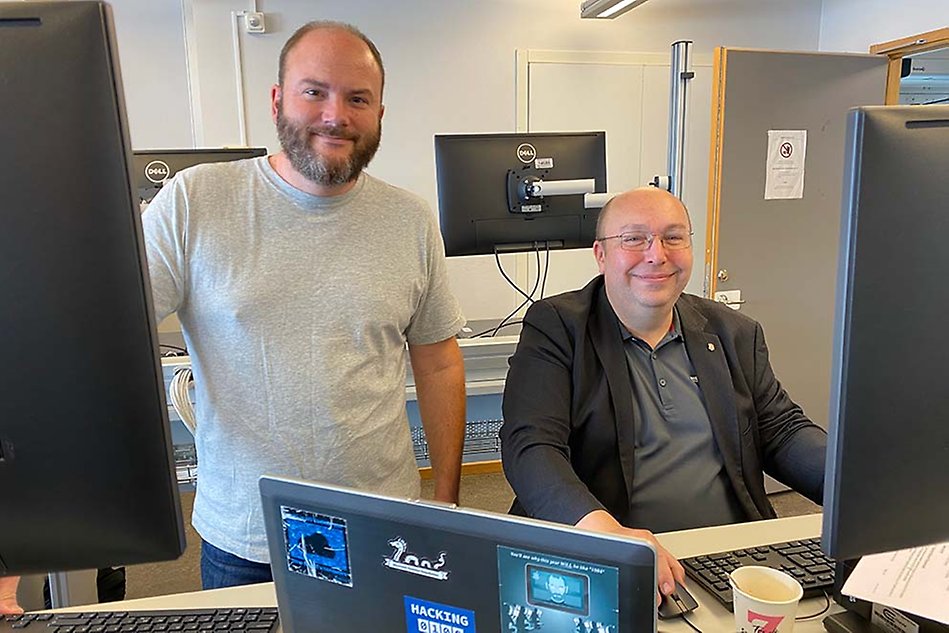Police authorities visited Halmstad University for a course in cyber security
15 employees from several European police authorities have recently visited Halmstad University for a course in network technology and cyber security. Practical training and knowledge exchange was on the agenda.
“Cybercrime is international and can not be solved on a national level. So it is very important that we meet and share experiences with each other”, says one of the course participants.
"After this courses, the participants can return home with new knowledge to pass on to criminal investigators and other colleagues within their police force."
Olga Torstensson, Lecturer at the School of Information Technology

Course leaders Malin Bornhager and Olga Torstensson (in the middle) are surrounded by some of the course participants. Apart from being responsible for the University's Cisco Academy and these courses, Malin Bornhager and Olga Torstensson are programme directors at Halmstad University. Malin Bornhager is responsible for the University's Bachelor's programme in IT Forensics and Information Security and Olga Torstensson for the Master's programme in Network Forensics.
Eight European countries represented
The three-day course was held in early October in the University's network lab. It was a continuation of the first course module that was held digitally this past spring. The 15 course participants represent police authorities in Spain, Greece, Ireland, Germany, Austria, Romania, Iceland and Sweden. The course included practical training in how to build networks, as well as exercises in cyber security with examples from real crimes.
The course leaders Olga Torstensson and Malin Bornhager are both experts in cyber security and network technology at Halmstad University.
“The course participants are instructors at European police authorities or academies and work with cybercrime in some way. After these two courses, they can return home with new knowledge to pass on to criminal investigators and other colleagues within their police force”, says Olga Torstensson, Lecturer at the School of Information Technology.

Course participants Martin (left) and Gert (right). Martin works at the German State Police School and Gert works in the cybercrime department at the Austrian Criminal Intelligence Service.
"We must collaborate internationally"
Gert works in the cybercrime department at the Austrian Criminal Intelligence Service. According to him, cybercrime is international and cannot be solved at national level.
“It’s great that we during this course can meet for real, and not just digitally, to share experiences and work together. We must collaborate internationally to fight cybercrime”, says Gert.
Course colleague Martin works at the German State Police School. He educates both future police officers and already active criminal investigators in cybercrime.
“You need knowledge about network technology and structure to know what to look for in different criminal cases and to find evidence. This course allows us to improve our education, courses and seminars in the area of cybercrime and cybersecurity”, says Martin.
European initiative for better cyber security
The course is given within the European Cybercrime Training and Education Group, ECTEG. Halmstad University has been a member of ECTEG since 2020, with the task of sharing knowledge and educational solutions in cyber security. The University is also a so-called Cisco Academy and has the right to train both instructors and students in specific cyber security courses.
Text and photo: Louise Wandel


